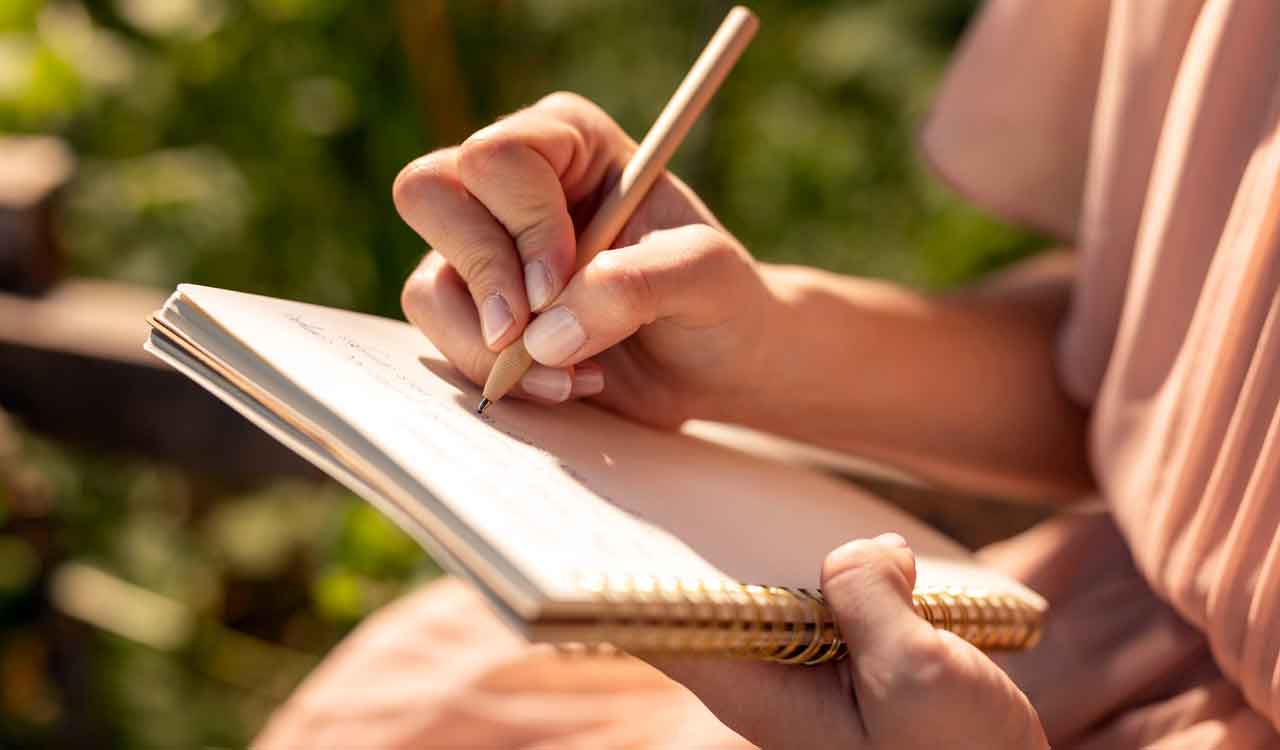Opinion: The power of Journalling
Penning down one’s thoughts is a powerful tool for self-reflection, emotional regulation and personal growth

By Viiveck Verma
Against the backdrop of a screen-saturated age, the practice of putting pen to paper is re-emerging as a cherished ritual. Journaling, an ancient practice with roots in various cultures, is more than a relic of the pre-digital era, it is a powerful tool for self-reflection, emotional regulation and personal growth. Its simplicity belies its profound impact, making it one of the most accessible yet underappreciated forms of self-care.
Penning Down
The benefits of journaling are both anecdotal and scientifically validated. Psychologists and researchers have long extolled its virtues, citing its ability to reduce stress, improve mental clarity, and even enhance physical health. Penning down one’s thoughts and emotions has been shown to lower cortisol levels, the body’s primary stress hormone.
Unlike therapy or social media, where external perception and validation often play a role, journaling offers a judgment-free space where you can be unabashedly honest
In a landmark study by Dr James Pennebaker, participants who engaged in expressive writing about traumatic experiences demonstrated improved emotional well-being and fewer doctor visits compared to those who did not.
Yet, journaling is not merely a clinical intervention, it can be seen as an art form, a dialogue with oneself. There is something profoundly intimate about the act of recording your inner world, your fears, hopes, triumphs, and failures, in your own words. Unlike therapy or social media, where external perception and validation often play a role, journaling offers a judgment-free space where you can be unabashedly honest. It’s a rare opportunity to strip away the masks we wear in public and confront our true selves.
Versatility
One of the most compelling aspects of journaling is its versatility. It can be as structured or unstructured as you like, tailored to suit individual needs and lifestyles. Some prefer the freeform approach, letting their thoughts flow uncensored onto the page. Others find solace in guided prompts, gratitude lists or bullet journaling, which combines creativity with organisation.
Regardless of the format, the act of writing creates a sense of mindfulness, anchoring you in the present moment. The sceptics, of course, will argue that journaling is an indulgence, a frivolous pastime for those with too much time on their hands. This perspective, while understandable, overlooks the larger picture. Journaling is not about navel-gazing or self-absorption; it is about cultivating awareness and clarity. In a time where mental health issues are on the rise, and the pace of life often feels overwhelming, the act of slowing down to reflect is anything but trivial. It is a radical act of self-preservation.
Practical Side
There is also a practical side to journaling that often goes unmentioned. It is a powerful tool for problem-solving and decision-making. Writing allows us to externalise our thoughts, making it easier to identify patterns, weigh options and consider different perspectives. Business leaders, creatives, and thinkers from Leonardo da Vinci to Oprah Winfrey have credited journaling with enhancing their work and even innovation. The act of writing is not just introspective; it is generative, sparking new ideas and insights.
Moreover, journaling provides a record of your growth over time. Flipping through old entries can be a humbling and enlightening experience, offering a third-person perspective into your past struggles, dreams and achievements and how you’ve dealt with each. In a culture obsessed with forward momentum, this opportunity to pause and reflect is invaluable.
Let it be Imperfect
But as simple as it may sound, journaling isn’t as easy as ABCs. Many struggle with consistency, fearing that their entries must be eloquent or profound. But the beauty of journaling lies in its imperfection. Spelling, grammar, and coherence are irrelevant, what matters is the act of showing up and engaging with yourself. Others worry about privacy, an understandable concern in an age of digital surveillance. The solution to that, however, is simple, keep your journal offline or opt for a physical notebook and let it be your confidant, a sounding board, and, at times, a lifeline.
The beauty of journaling is that it requires no special skills or equipment. All you need is a notebook, a pen, and the willingness to be honest with yourself. Whether you write for five minutes or 50, whether you fill pages or jot down a single sentence, the act itself is what matters.
And beyond the personal benefits, journaling is also about something very fundamental about humanity — our need to express and understand ourselves is universal. In the words of author Joan Didion, “We tell ourselves stories in order to live.”

(The author is founder and CEO, Upsurge Global, co-founder Global Carbon Warriors and Adjunct Professor, EThames College)
Related News
-
Ayodhya priest questions Telangana govt’s Ramzan relief move
19 mins ago -
Titans emerge champions in sixth Samuel Vasanth Kumar memorial basketball tournament
23 mins ago -
Hyd Open golf championship to kick off from February 19
29 mins ago -
Jammu and Kashmir enter Ranji Trophy final with win over Bengal
29 mins ago -
Telangana High Court seeks ground report on forest plantation at Damagundam
32 mins ago -
Sahibzada Farhan century powers Pakistan to big win over Namibia
33 mins ago -
Chief Minister’s Cup 2025 sees record participation across Telangana
36 mins ago -
Sports briefs: Shrivalli enters second round
39 mins ago




